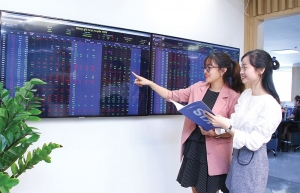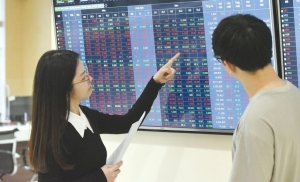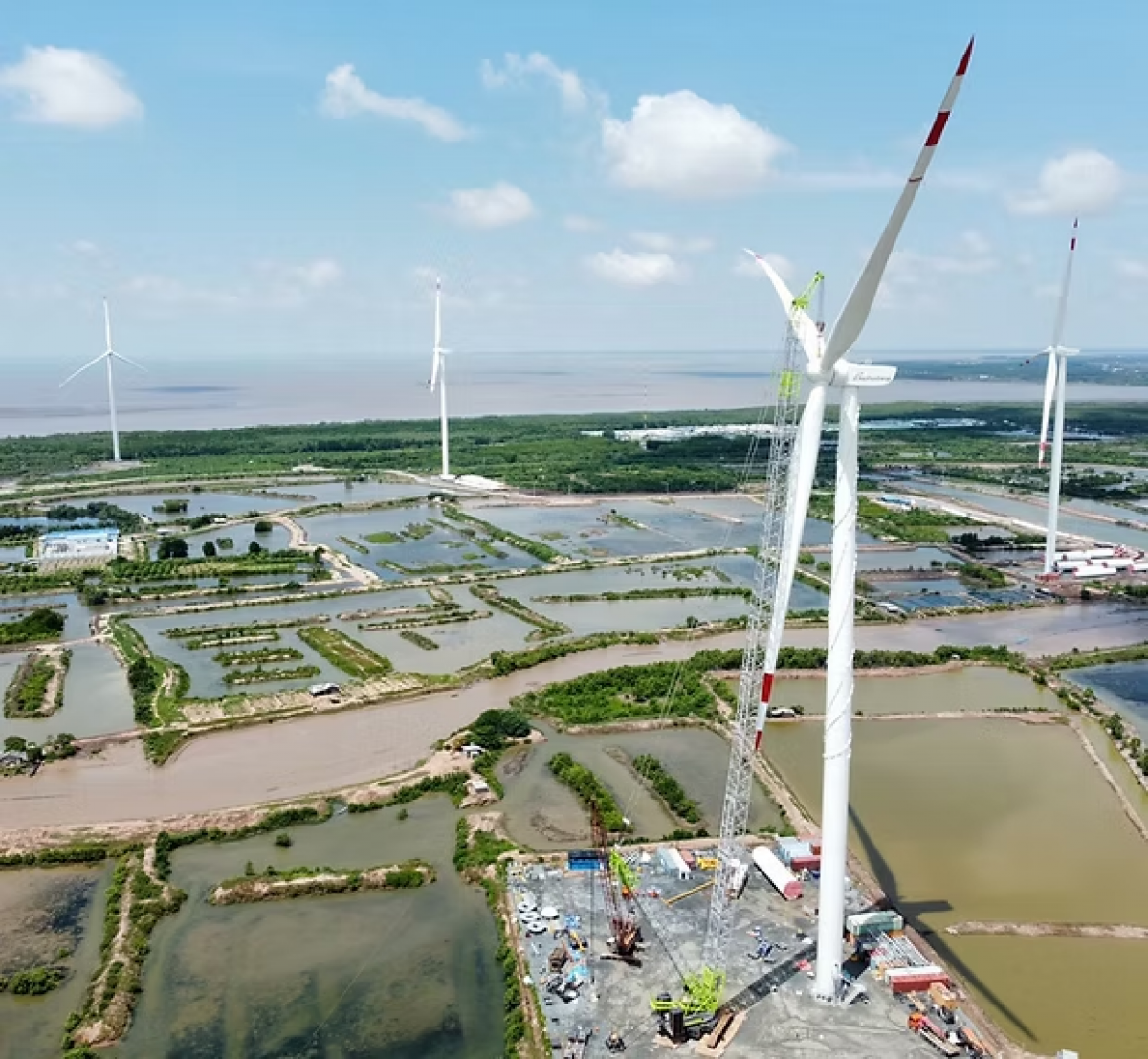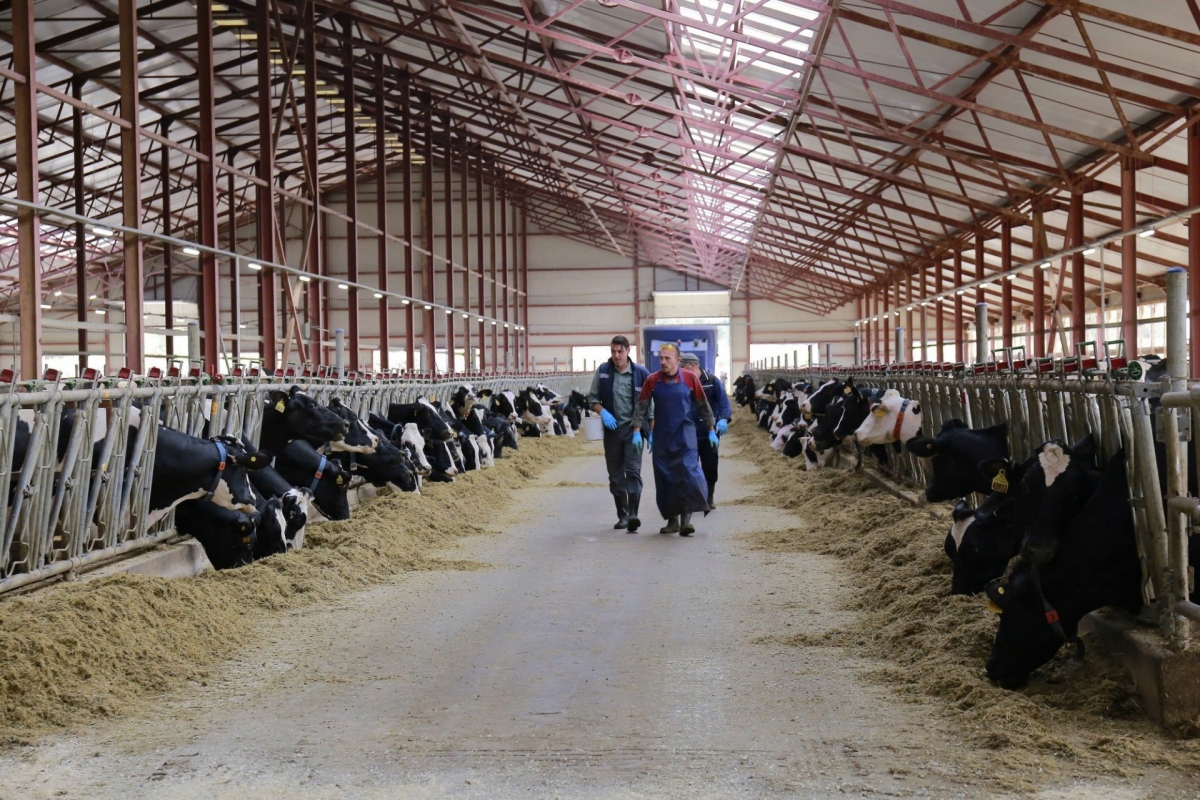INTERNATIONAL INVESTMENT
AND PORTAL
Major international organisations have reported that the United States is expected to see a minor slowdown in growth in the upcoming year relative to 2024, dropping to roughly 2.1 per cent to 2.7 per cent. This rate is still higher than previous projections, suggesting that the US economy will continue to grow strongly in comparison to other developed economies, like those in Japan or Europe.
 Trinh Ha, financial market analyst Exness Investment Bank
Trinh Ha, financial market analyst Exness Investment Bank Savings rates have sharply declined as a result of the strong post-pandemic recovery of the US economy, which has increased consumer spending. This trend has been largely supported by economic stimulus plans and the recovery of the economy following the pandemic. Spending more than income levels can pose long-term risks, even though increased consumption promotes economic growth. The US economy may face difficulties related to inflation.
The 2025 market scenario of major investment banks in the US is inclined to an optimistic trend when half believe that the S&P500 index will reach an average of 6,697 points, up about 10 per cent compared to 2024. The US economy in 2025 is forecast to have positive economic growth with gradually decreasing interest rates, inflation decreasing although slowly, and corporate profits will grow compared to 2024.
In the context of the ongoing US-China trade tensions, there is reason to believe that this competition will continue to boost trade trends and foreign direct investment flows. Vietnam has one of the most attractive business environments among economies with similar incomes in the region, with competitive labour costs and flexible labour regulations, which will ensure Vietnam’s attractiveness.
With the Vietnamese market in 2025 and the following years, it will aim for better growth in the long term. In particular, the technology sector is the sector that helps the economy grow exponentially instead of just growing in terms of labour or capital. Many signs show that the government has focused on attracting high-tech investment, such as cooperation with Nvidia and increasing support for Viettel to build Vietnam’s first chip factory.
This is a positive sign, helping Vietnam avoid the decline in recent old advantages such as labour costs, energy costs, or other advantages. At the same time, Vietnam also needs to prepare for the next US administration’s expected tariff rate with China. It is necessary to be ready to avoid high tariffs; in the worst case, it may only be imposed a tax rate of about 10 per cent, like some other countries.
This is a great opportunity for both the Vietnamese economy and stock market if China and the US cannot negotiate on tariff rates. Firstly, capital from China will shift more strongly to Vietnam. Secondly, Vietnam can also receive technology transfer, as well as better support from the US in production and exploitation. These opportunities can lead to stronger growth of the Vietnamese economy.
The Vietnamese economy may enter a new phase of better growth which will directly affect the stock market. The economy and stocks will have greater breakthroughs in capital sources and expectations of strong growth opportunities. The big driving force of the stock market in 2025 comes from a number of factors. Firstly, the growth of listed enterprises is good, the forecast profit growth rate of listed enterprises in 2025 is from 25-30 per cent.
Secondly, the stock market valuation is still attractive, with a forward price-to-earnings ratio of about 12 times. The current ratio is about 14.5 times, much lower than the median of the past 10 years. The third highlight is that we are preparing for the market upgrade that is coming very soon. This is the most important, attracting a strong increase in foreign capital inflows in the second half of 2025.
This year could be a year of benefits for investment groups such as seaport transport stocks, industrial park real estate, residential real estate, consumer retail exports, and the banking industry.
From the opportunity to increase investment capital from China, industries serving the transition process will benefit greatly, such as industrial parks, port services, and logistics. American customers will tend to find alternative sources of goods when Chinese goods are subject to high tariffs, and Vietnam or some other markets with alternative products will then benefit. In particular, the final period before Donald Trump takes office will record an extremely high volume of imported goods, with investors buying and hoarding to avoid being affected by the new tax rate.
In addition to high-tech industries, industries producing materials for technology are also expected to benefit in the coming time. When the economy enters an expansion cycle, people’s income will continue to grow, confidence and consumption will also be better. Industries related to services, consumption, and goods will also maintain a good growth rate.
The real estate market has also shown signs of significant recovery, especially the Hanoi and Ho Chi Minh City markets, witnessing a positive recovery in prices. Regarding the potential for market upgrading, the banking industry, the industry with the largest proportion in Vietnam’s securities, will also be allocated more capital flows, boosting the price of the banking industry.
However, the banking industry still faces many risks related to pressure to increase interest rates and bad debt.
 Vietnam’s capital market set to diversify in 2025
Vietnam’s capital market set to diversify in 2025 To transform Vietnam’s capital market into an effective and sustainable source of funding, experts said it should focus on enhancing the quality of securities on the stock market, promoting green and sustainable bonds, and systematically developing the financial advisory profession.
 Investors call for review of dividend tax
Investors call for review of dividend tax Many investors believe taxing shareholders twice on the same profit is unfair, triggering the need to review and perhaps abolish the practice to strengthen investor confidence, increase investment returns, and entice more capital inflow into the stock market.


















